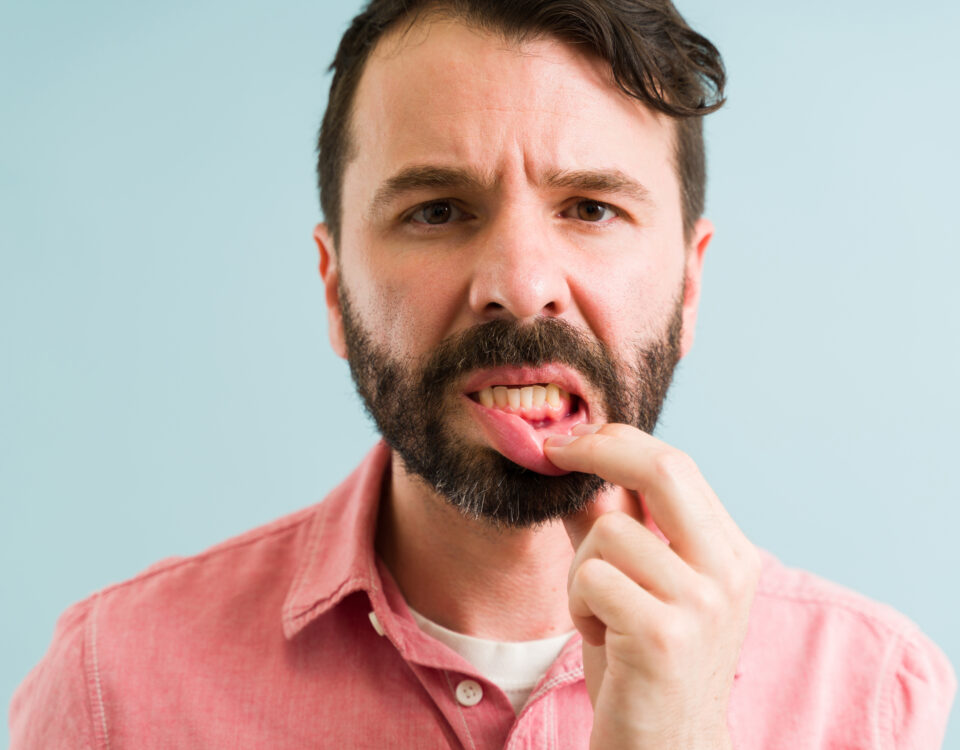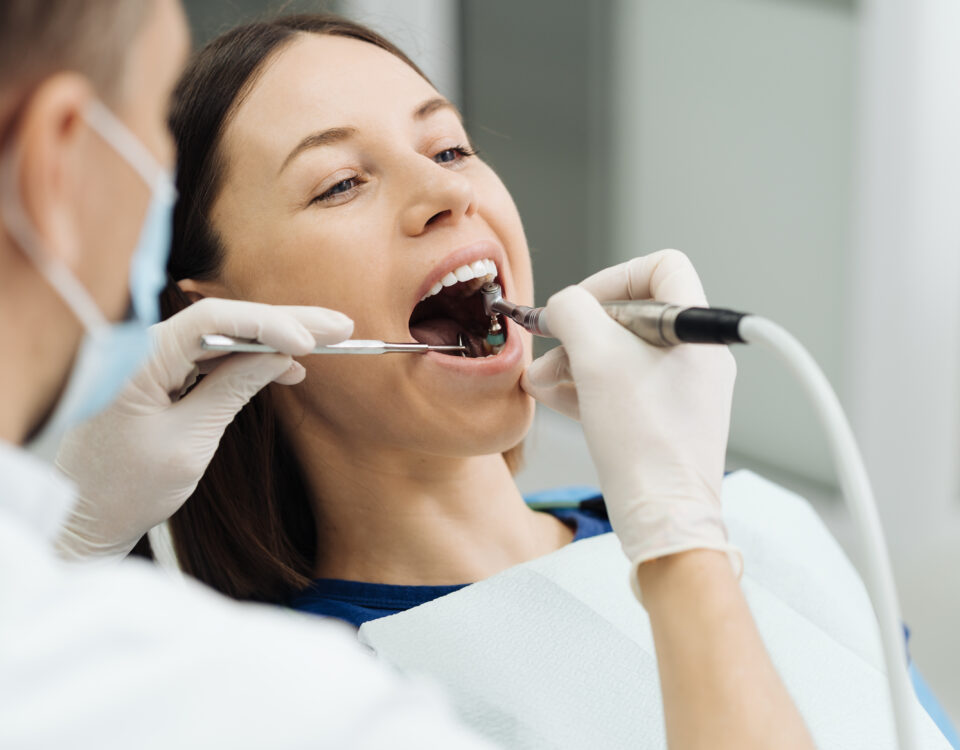Help! My Gums Hurt When I Brush My Teeth

Quit Smoking and Improve Your Dental Health in 2024
January 5, 2024
Keep Your Breath Fresh with These Tips
January 19, 2024Help! My Gums Hurt When I Brush My Teeth

Have you ever experienced pain or discomfort in your gums when you brush your teeth? You’re not alone. Gum sensitivity and pain are common issues that can make it difficult to maintain a proper oral hygiene routine. If you’ve been dealing with this problem, it’s important to understand the causes and possible treatments. In this blog post, we’ll explore the reasons why your gums hurt and provide some helpful tips on how to alleviate your discomfort for a healthier mouth.
Signs of Gum Pain and Sensitivity
Gum pain and sensitivity can manifest in a variety of ways, including:
- Redness or swelling in the gums
- Bleeding when brushing or flossing
- Receding gums, making teeth appear longer than usual
- Discomfort or pain when eating or chewing
If you experience any of these symptoms, it’s important to address them as soon as possible. Ignoring gum sensitivity can lead to more serious issues such as gum disease, which can cause permanent damage to your teeth and gums.
The Reasons Why Your Gums Hurt When You Brush Your Teeth
Hard Brushing:
Brushing your teeth too hard can cause irritation and inflammation in your gums. When you brush vigorously, the bristles of your toothbrush can damage the delicate tissue of your gums, causing pain and bleeding. Try to be gentle when brushing, using a soft-bristled toothbrush and circular motions. Avoid scrubbing your teeth aggressively or using excessive force.
Gum Disease:
Gum sensitivity can also be a sign of periodontal disease, a bacterial infection that affects the gums and teeth. Other symptoms of gum disease include bleeding gums, bad breath, and loose teeth. If you suspect you may have gum disease, it’s important to visit your dentist for a proper diagnosis and treatment. Maintaining good oral hygiene habits, such as brushing and flossing regularly, can help prevent gum disease.
Toothpaste Ingredients:
Some toothpaste ingredients can be irritating to your gums, such as baking soda or whitening agents. If your gums are sensitive, try using a toothpaste designed for sensitive teeth that does not contain harsh abrasive agents. Your dentist may also recommend a fluoride mouthwash or rinse to help strengthen your tooth enamel and prevent decay.
Hormonal Changes:
Hormonal changes can also cause gum sensitivity, especially during pregnancy or menopause. During these times, the body produces higher levels of progesterone, which can cause the gums to become more sensitive to plaque and bacteria. If you’re experiencing gum sensitivity due to hormonal changes, talk to your dentist about ways to maintain proper oral hygiene and alleviate your discomfort.
Allergies:
In some cases, gum sensitivity can be caused by an allergic reaction to certain foods or oral care products. If you experience consistent gum sensitivity and are unable to pinpoint the cause, talk to your dentist or an allergist about conducting an allergy test.
Gum sensitivity is a common issue that can make it difficult to keep up with a healthy oral hygiene routine. If you’re experiencing pain or discomfort in your gums when you brush your teeth, it’s important to understand the underlying causes and explore possible treatments.
Treatments for Gum Pain and Sensitivity
Depending on the cause of your gum sensitivity, there are several treatments that may help alleviate your discomfort:
- Practice proper oral hygiene habits, including brushing twice a day and flossing daily.
- Use a toothbrush with soft bristles and brush gently in circular motions.
- Visit your dentist regularly for check-ups and professional cleanings to prevent gum disease.
- If your gum sensitivity is caused by hormonal changes, consider using a fluoride mouthwash to strengthen your tooth enamel.
- Talk to your dentist about possible toothpaste alternatives if you suspect certain ingredients are causing irritation.
- If allergies are the culprit, avoid foods or products that trigger a reaction and consult with an allergist for further guidance.
Ultimately, maintaining good oral hygiene and addressing gum sensitivity as soon as it arises is essential for a healthy mouth. In addition to implementing these treatment options, be sure to communicate with your dentist about any concerns you may have regarding your gums or overall oral health. Together, you can work towards finding the best solution for a pain-free, happy smile.
Make an Appointment with Mountain Aire Dentistry
Are you experiencing gum pain or sensitivity? Mountain Aire Dentistry is here to help. Our experienced team offers a wide range of services, including periodontal therapy and treatment for sensitive teeth. Don’t let gum sensitivity prevent you from achieving a healthy smile – schedule an appointment with us today!
When you visit our Broomfield dental office, your smile is our top priority. Our Dentists invite you to experience the difference a warm and caring team can provide for you and your family. Enjoy a unique and comfortable dental experience designed to bring a healthier and happier smile back into your life. We invite you to call or visit our Broomfield dental office and discover the exceptional difference we offer to those we serve.













